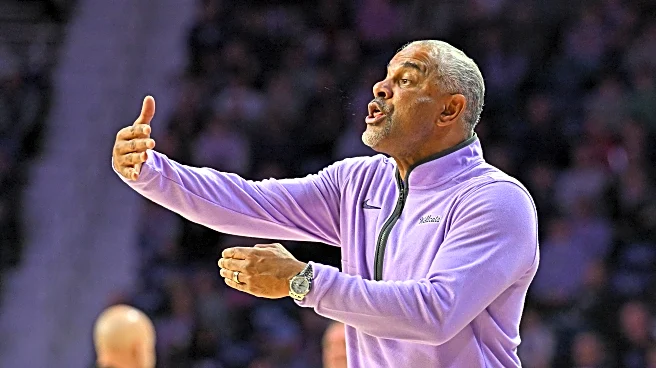What is the story about?
What's Happening?
Highsnobiety, owned by Berlin-based Zalando, has announced plans to discontinue its retail operations by the end of the year. The company will refocus on its publishing and cultural agency sectors, which have been central to its identity in the sneakers and streetwear industry. This decision coincides with Highsnobiety's 20th anniversary and will affect approximately 50 roles within the company. The flagship store in Berlin will be transformed into a space for temporary pop-ups and brand collaborations. Highsnobiety launched its e-commerce business in 2019 to complement its editorial content, but has decided that its long-term impact lies in cultural influence rather than retail.
Why It's Important?
Highsnobiety's decision to cease retail operations reflects broader challenges in the e-commerce sector, including market conditions and consumer sentiment. By focusing on publishing and cultural agency, Highsnobiety aims to leverage its strengths in shaping cultural trends and maintaining credibility with key audiences. This strategic shift may allow the company to better navigate the competitive landscape and capitalize on its established reputation in the fashion industry. The move also highlights the importance of adaptability and innovation in response to changing market dynamics.
What's Next?
As Highsnobiety transitions away from retail, it will likely concentrate on expanding its influence in cultural and editorial domains. The reconceptualization of its Berlin store into a venue for pop-ups and collaborations suggests a continued emphasis on experiential marketing and brand partnerships. The company may explore new opportunities to engage with its audience through creative content and cultural initiatives, potentially leading to collaborations with other industry players.
Beyond the Headlines
The restructuring of Highsnobiety raises considerations about the future of retail and the role of cultural influence in consumer behavior. As the company shifts its focus, it may contribute to broader discussions about the sustainability of traditional retail models and the impact of cultural trends on purchasing decisions. The move also underscores the importance of aligning business strategies with core competencies and market demands.















